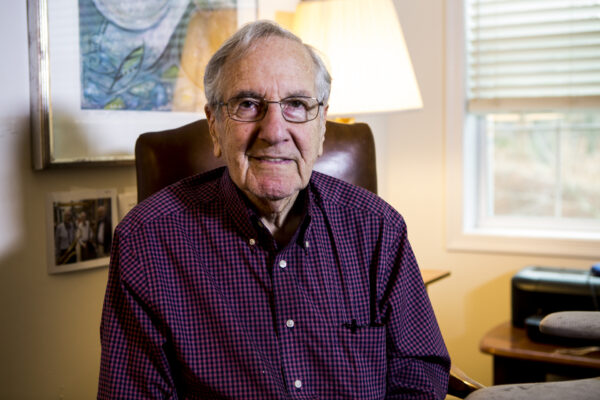The ACLU of Maine today celebrates the 100th birthday of Justice Louis Scolnik, an accomplished judge and civil rights icon in Maine.
In 1968, Scolnik was co-founder and the first president of the Maine chapter of the American Civil Liberties Union. The ACLU of Maine established the Justice Louis Scolnik Award in 1989. It honors members of the legal community who have demonstrated an outstanding commitment to the protection of civil liberties.
In 2019, Justice Scolnik was honored for his lifetime commitment to protecting civil liberties with the award that bears his name.
“Justice Scolnik is a trailblazing civil rights leader in Maine, and accomplished and well-respected jurist, who gave voice to the marginalized throughout his career,” said Arthur Padilla, executive director of the ACLU of Maine. “Justice Scolnik is a person of the greatest integrity who has never shied away from defending his principles and the civil liberties of others. The ACLU of Maine, our Board of Directors and all of our members wish Justice Scolnik a happy 100th birthday. Maine is a better place today because of his work.”
Before his appointment to the Maine Superior Court in 1974 and the Maine Supreme Judicial Court in 1983, Scolnik was active in the local branch of the NAACP, and also served, in the mid-1960s, as chairman of the Maine Advisory Committee to the U.S. Commission on Civil Rights, where he fought to end housing discrimination, including against Black service members stationed at Dow Air Force Base in Bangor who were being blocked from renting or buying adequate housing.
After serving for 16 years as the only cooperating attorney in Maine for the national ACLU, Justice Scolnik joined 20 others in forming the Maine affiliate of the ACLU in 1968. Among the organizations earliest victories was a case involving a Belfast (Maine) High School teacher who was fired for discussing issues of gender and sexuality as part of a lesson on “Romeo and Juliet,” as well as cases concerning prisoners’ rights, sex discrimination and religion in public schools.
He was born in Lewiston in 1923 and attended Bates College and Georgetown Law. He retired from the Maine Supreme Judicial Court in 1988 and now lives in Andover, Mass.
Stay Informed
Sign up to be the first to hear about how to take action.
By completing this form, I agree to receive occasional emails per the terms of the ACLU’s privacy statement.
By completing this form, I agree to receive occasional emails per the terms of the ACLU’s privacy statement.

